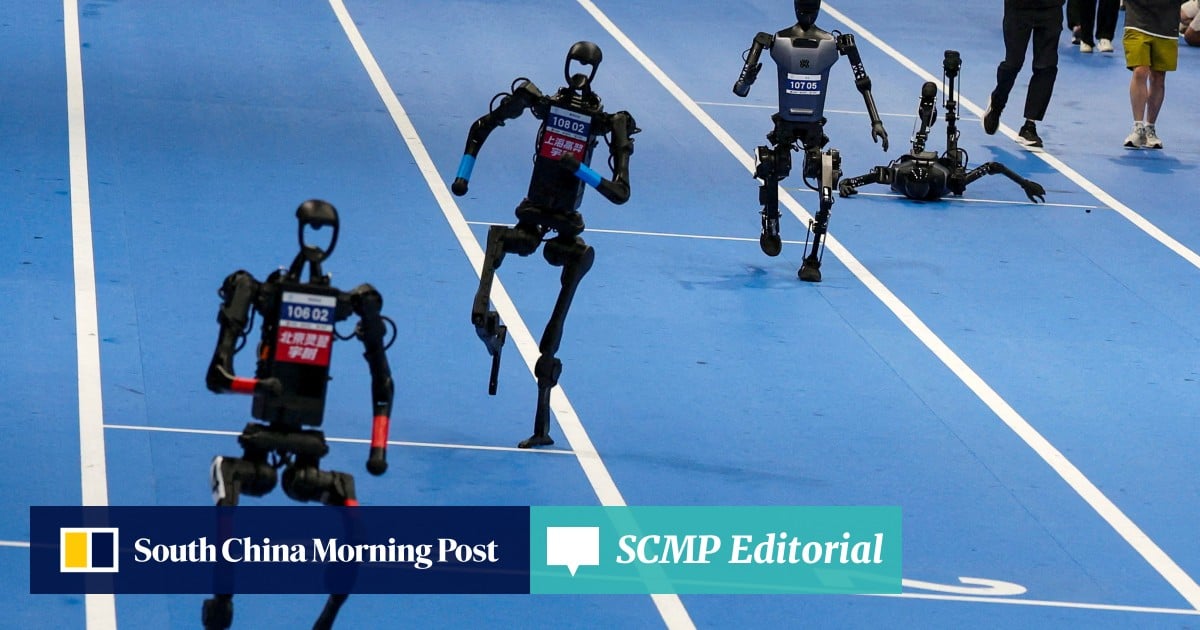
Editorial | First humanoid robot games are proof the future is already here
Babies are clumsy – and so are humanoid robots. That may be why so many of us were amused watching videos of the non-human competitors at the inaugural World Humanoid Robot Games in Beijing, and found them cute. While many managed to perform adequately when attempting backflips, boxing, jumping, running and kicking balls, tripping over seemed to be the order of the day.
But for all the amusement and entertainment, this is a serious business. And China wants to make sure it leads the way. Not too long ago, the best human chess players could still beat computers. Today, the best players don’t stand a chance against machines. A robot from Hangzhou-based Unitree, a leading robotic start-up, won a gold medal at the games by completing a 1,500-metre indoor race in 6:34.40. It fell far short of the current human world indoor record of 3:29.63, but it was still faster than many people.
Anyone who watched the robots at the event would realise that, soon, they will be faster, stronger and more agile than any human. Physical labour, at least for those who can afford it, may soon be a thing of the past. That may also be disconcerting.
Already, in China, Japan and South Korea, some hotels, restaurants and elderly care homes are using robots. The United States is developing robotic soldiers.
Those at the Beijing games were “dumb” robots, programmed to perform only a few tasks. But China is going full steam ahead with artificial intelligence (AI). Robots are being merged with AI.
Since the time of Henry Ford and his pioneering assembly-line method of car manufacturing, the complaint has been that human workers are forced to perform robotic tasks.
关于《Editorial | First humanoid robot games are proof the future is already here》的评论
发表评论
摘要
相关讨论
- IOS Developer (Early-stage employee/co-founder)
- 康师傅黑了900亿 路透新闻, 大家知道了吗?
- [上海] Wiredcraft 招聘Javascript CSS前端开发;Node.js Golang Python后端开发程序猿!还有QA Tester;DevOps;项目经理等职位等你来投!!
- 在新加坡做面试官的经历 (Interviewer Experience for UI/UX Designer in Singapore)
- 我有个刚会走路的孩子。她应该如何准备去应对15年后的人工智能的世界的职场?我应该在她肯学的时候就开始教她Python么?
